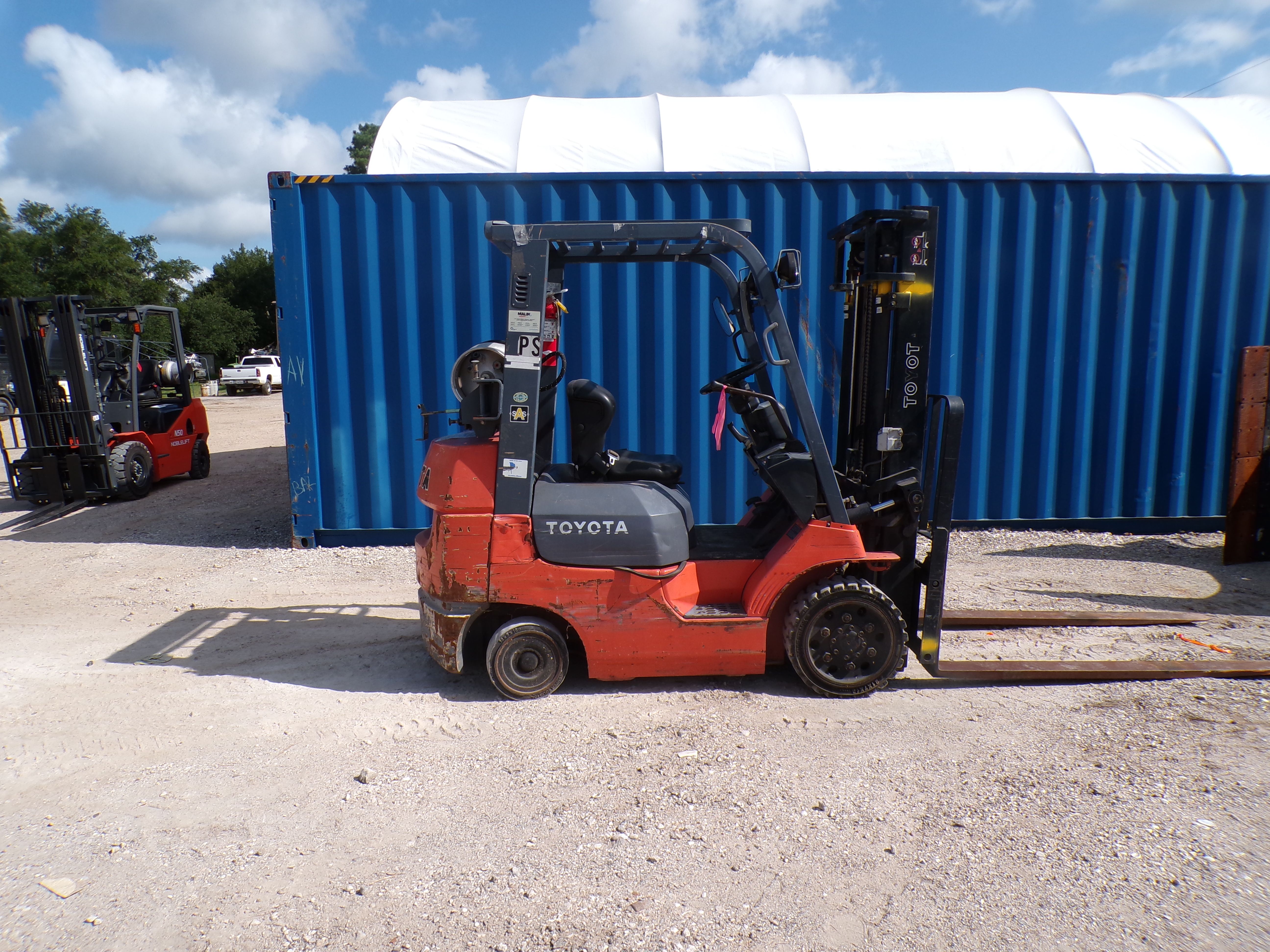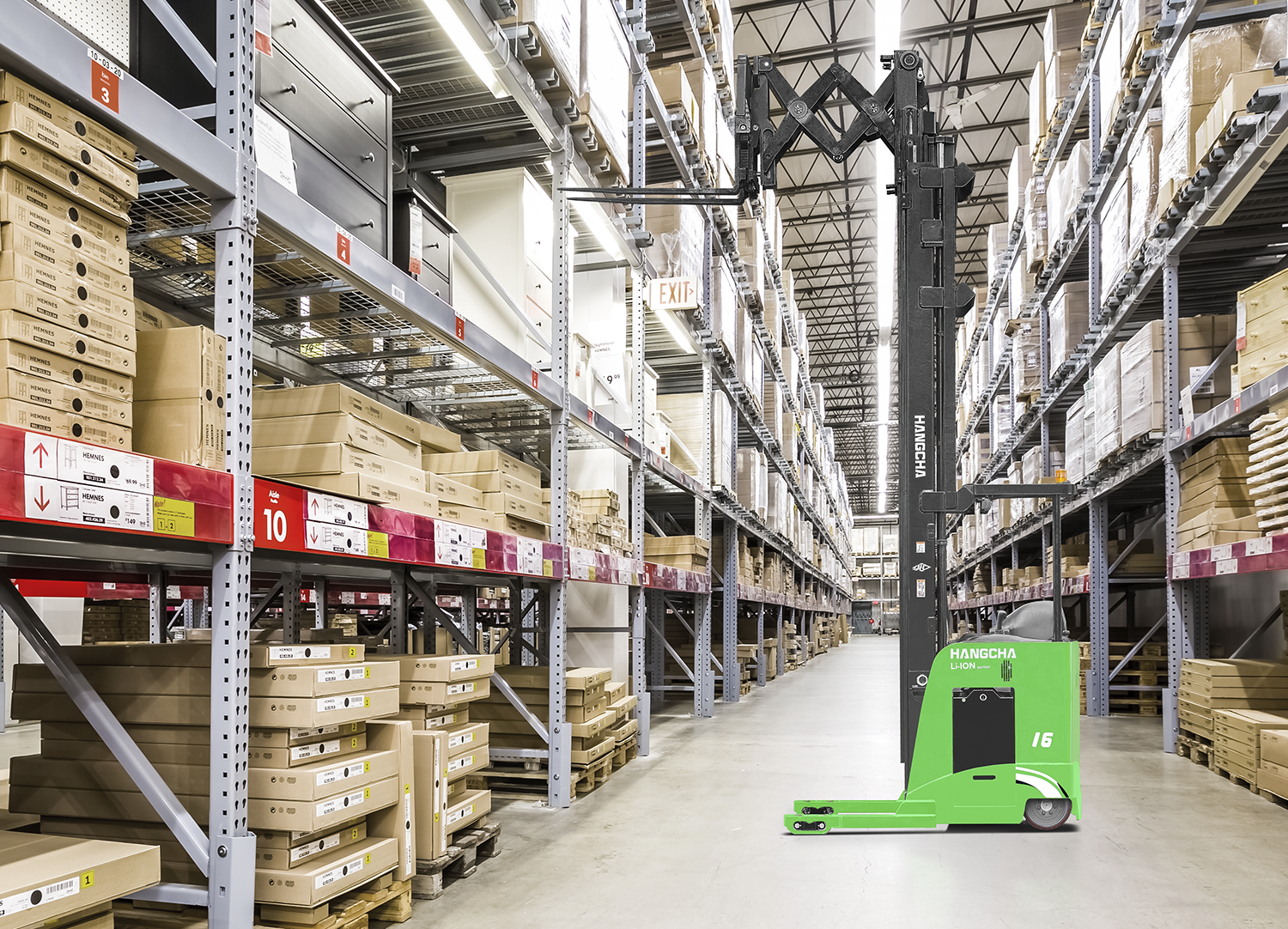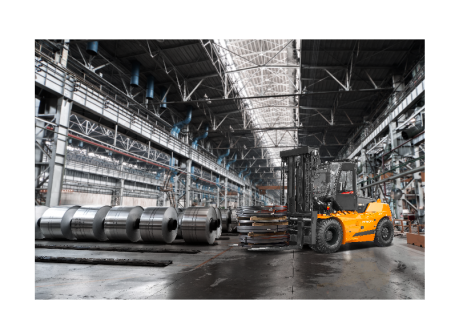Why Preventative Forklift Maintenance is Critical for Your Business
Forklifts are essential for material handling in warehouses, construction sites, and manufacturing facilities. Like any other heavy equipment, they require routine maintenance to ensure peak performance and safety. Neglecting maintenance can lead to unexpected breakdowns, costly repairs, and increased safety risks, impacting productivity and operational efficiency.
Avoiding Costly Repairs and Unexpected Downtime
Regular servicing helps identify potential issues before they turn into major mechanical failures. A well-maintained forklift experiences fewer breakdowns, reducing the risk of costly emergency repairs. Studies show that unplanned forklift downtime can cost businesses thousands of dollars in lost productivity, delayed shipments, and equipment replacement expenses.
Extending Forklift Lifespan and Performance
Routine maintenance ensures that forklifts operate efficiently for a longer period. Components such as hydraulic systems, tires, and braking mechanisms wear down over time. Scheduled servicing prolongs the life of these parts, reducing the need for frequent replacements and improving the overall return on investment.
Ensuring Operator Safety and Compliance
Poorly maintained forklifts pose significant safety hazards, increasing the likelihood of workplace accidents. Malfunctioning brakes, steering issues, or hydraulic leaks can lead to serious injuries. Regular inspections help businesses comply with workplace safety regulations, creating a secure environment for operators and reducing liability risks.
Financial Benefits of Preventative Maintenance
Businesses that invest in preventative maintenance experience significant cost savings. Keeping forklifts in optimal condition minimizes fuel consumption, reduces wear on key components, and lowers long-term maintenance expenses. A study found that companies implementing preventative maintenance programs save up to 25 percent in equipment-related costs annually.
Reduce Downtime with Expert Forklift Maintenance Services
Unscheduled downtime disrupts workflow, impacts customer deliveries, and increases operational costs. Partnering with a professional forklift maintenance provider ensures consistent servicing, access to genuine replacement parts, and timely repairs.
Explore our forklift repairs and maintenance services to keep your fleet running efficiently and minimize unexpected expenses.
Why Regular Maintenance is Essential
Preventative maintenance is the key to keeping forklifts in peak operating condition, preventing costly breakdowns, and ensuring workplace safety. Forklifts are used daily in warehouses, distribution centers, and industrial facilities, making them prone to wear and tear. Without proper servicing, small mechanical issues can escalate into major failures that disrupt operations and lead to significant financial losses.
Reducing Unexpected Breakdowns
The Cost of Ignoring Minor Issues
Forklifts endure constant stress from lifting heavy loads, maneuvering through tight spaces, and operating in demanding environments. Over time, small issues such as worn-out brakes, hydraulic leaks, and overheating engines can lead to system failures if left unaddressed. Businesses that skip routine maintenance often face sudden equipment malfunctions, which result in downtime and expensive emergency repairs.
Impact on Warehouse Productivity and Order Fulfillment
An unexpected forklift breakdown can halt warehouse operations, delaying shipments and reducing efficiency. When a forklift becomes inoperable, businesses must either wait for repairs or rent a replacement, both of which increase costs. In fast-paced industries like logistics and retail, even a few hours of downtime can cause delivery delays, impacting customer satisfaction and revenue.
Real-World Example of Unplanned Downtime
A large e-commerce fulfillment center experienced a forklift failure during peak holiday season due to neglected battery maintenance. The company relied on a single electric forklift to move high-demand inventory, and the sudden breakdown resulted in a three-day delay in order processing, leading to lost sales and customer complaints. Investing in routine maintenance could have prevented this costly setback.
Extending Forklift Lifespan
How Maintenance Increases Equipment Longevity
A well-maintained forklift can last significantly longer than one that is neglected. Regular servicing prevents excessive wear on key components such as engines, transmissions, and hydraulic systems, allowing the forklift to operate efficiently for years. Businesses that follow manufacturer-recommended maintenance schedules can extend their forklift’s lifespan by up to 50 percent, reducing the need for frequent replacements.
Comparing Longevity Between Maintained and Neglected Forklifts
- Forklifts with proactive maintenance last between 12 to 15 years, with fewer breakdowns and lower repair costs.
- Forklifts without regular servicing may experience major failures within 5 to 7 years, requiring costly repairs or early replacement.
Higher Resale Value When Upgrading Equipment
Companies that maintain their forklifts properly can sell or trade them in at a higher value when upgrading to newer models. Buyers prefer used forklifts that have documented maintenance histories, as they are more reliable and require fewer immediate repairs. This makes regular servicing not only a cost-saving strategy but also a profitable investment.
Improving Workplace Safety
The Risks of Poorly Maintained Forklifts
Neglecting forklift maintenance creates safety hazards that put operators and other workers at risk. Faulty brakes, steering issues, and hydraulic failures can lead to serious accidents, injuries, or even fatalities. According to OSHA (Occupational Safety and Health Administration), nearly 100 forklift-related fatalities and over 35,000 serious injuries occur annually in the United States, many of which are caused by preventable mechanical failures.
Common Safety Hazards Due to Lack of Maintenance
- Brake failure increases stopping distance, leading to potential collisions.
- Faulty steering systems make it difficult for operators to control loads, increasing the risk of tipping over.
- Hydraulic leaks reduce lifting efficiency and can cause sudden load drops.
Daily Pre-Operation Inspections for Safety Compliance
To prevent accidents, operators should conduct a daily forklift inspection before each shift. This ensures that the forklift is in good working condition and allows operators to identify any potential issues early.
Essential daily maintenance checks include:
- Inspecting brakes, steering, and tires for wear
- Checking hydraulic fluid and oil levels
- Testing lights, horns, and backup alarms
- Ensuring the mast and forks are properly aligned
By implementing a routine inspection program, businesses can prevent safety hazards, comply with OSHA regulations, and create a safer work environment for forklift operators.
The Long-Term Benefits of Preventative Maintenance
Regular forklift maintenance helps businesses reduce repair costs, extend equipment lifespan, and improve workplace safety. Companies that invest in routine servicing experience fewer operational disruptions and lower overall maintenance expenses.
For expert maintenance services and repairs, contact our team today and keep your forklifts running at peak performance.
Common Forklift Issues and How to Avoid Them
Regular maintenance is essential for preventing unexpected forklift failures and ensuring smooth operations. Forklifts experience wear and tear due to daily use, and without proper servicing, small issues can turn into costly repairs. Understanding common forklift problems and taking preventive measures can help businesses reduce downtime and extend equipment lifespan.
Battery and Charging System Failures
Causes of Battery Degradation in Electric Forklifts
Electric forklifts rely on lead-acid or lithium-ion batteries for power. Over time, improper charging habits, exposure to extreme temperatures, and lack of maintenance lead to premature battery failure. Frequent deep discharges and overcharging can degrade battery cells, reducing overall lifespan.
Best Practices for Battery Maintenance
- Follow proper charging cycles by recharging batteries when they reach 20 to 30 percent capacity to prevent deep discharges.
- Keep battery terminals clean to avoid corrosion, which can cause voltage drops and inefficiencies.
- Check for leaks and ensure proper electrolyte levels in lead-acid batteries to maintain consistent performance.
Preventing Battery-Related Downtime
Routine battery inspections and following manufacturer-recommended charging guidelines can prevent forklift downtime. Investing in automatic watering systems for lead-acid batteries also helps maintain proper electrolyte levels.
Hydraulic System Leaks
How Damaged Seals and Hoses Lead to Leaks
Hydraulic systems power forklift lifting and steering functions. Worn-out seals, cracked hoses, or improper fluid levels can cause hydraulic fluid leaks, leading to inefficient lifting and reduced load capacity.
Early Warning Signs of Hydraulic Failure
- Puddles of hydraulic fluid near parked forklifts.
- Slow or unresponsive lifting mechanisms indicating pressure loss.
- Unusual noises such as whining or hissing during operation.
Proactive Hydraulic System Maintenance
- Check hydraulic fluid levels daily to ensure smooth operation.
- Inspect hoses and seals for wear to prevent leaks before they occur.
- Replace contaminated hydraulic fluid to maintain system efficiency and prevent damage.
Tire Wear and Traction Problems
The Impact of Worn-Out Tires on Forklift Stability
Tires play a crucial role in maintaining stability and load control. Worn-out or improperly inflated tires reduce traction, increasing the risk of skidding and tipping over.
Cushion vs. Pneumatic Tires: Which One Lasts Longer?
- Cushion tires are best for indoor use on smooth warehouse floors but wear down faster on rough terrain.
- Pneumatic tires provide better durability for outdoor applications but require regular air pressure checks.
Extending Tire Life with Routine Maintenance
- Inspect tire pressure daily to maintain proper inflation and load distribution.
- Rotate tires regularly to ensure even wear and maximize lifespan.
- Avoid overloading forklifts, which can cause excessive tire stress and premature damage.
Brake System Malfunctions
Why Frequent Braking Causes Excessive Wear
Forklifts operate in high-traffic environments that require frequent stopping and starting. Over time, brake pads, discs, and calipers wear out, leading to reduced stopping power and increased safety risks.
Signs That Indicate Brake Issues
- Squeaking or grinding noises when applying brakes.
- Longer stopping distances, especially under heavy loads.
- Brake pedal resistance changes, indicating potential hydraulic or mechanical failure.
How Routine Brake Inspections Prevent Accidents
- Inspect brake fluid levels weekly to ensure proper hydraulic pressure.
- Check brake pads for wear and replace them when thickness reaches safety limits.
- Test parking brakes regularly to prevent forklift rollaways when parked.
Fork and Mast Alignment Issues
Why Proper Mast Alignment is Essential for Load Stability
The forklift mast and forks must be properly aligned to ensure even weight distribution. Misalignment leads to unstable lifting, uneven weight distribution, and increased strain on key components.
Common Causes of Mast and Fork Misalignment
- Improper fork spacing, leading to load instability.
- Lack of lubrication in mast rollers, causing stiffness.
- Loose bolts and fasteners, affecting structural integrity.
Proactive Steps to Maintain Mast Alignment
- Lubricate mast rollers and chains to ensure smooth lifting motion.
- Check fork level adjustment to maintain balance during operations.
- Tighten all bolts and fasteners regularly to prevent loosening over time.
Creating a Forklift Maintenance Schedule
Establishing a structured maintenance routine prevents unexpected breakdowns and reduces costly repairs. A well-maintained forklift fleet operates efficiently, ensuring workplace safety and compliance with industry standards.
Daily Maintenance Checks
The Importance of Pre-Shift Inspections
A quick five-minute forklift inspection before each shift can help identify early signs of wear and prevent major failures. OSHA requires daily pre-operation inspections to ensure safe working conditions.
Daily Forklift Inspection Checklist
- Check fluid levels, including hydraulic oil, coolant, and brake fluid.
- Inspect tires for wear, damage, and proper inflation.
- Test brakes, steering, and warning signals for proper functionality.
- Ensure forks and mast are in good condition and aligned properly.
Weekly and Monthly Maintenance Tasks
Critical Components That Require Routine Servicing
While daily checks focus on basic safety, weekly and monthly maintenance tasks ensure the long-term efficiency of forklifts.
- Replace air filters to prevent dust buildup in combustion forklifts.
- Inspect hydraulic hoses for leaks and cracks.
- Lubricate moving parts, including mast rollers and chains.
- Tighten loose bolts and fasteners that could compromise stability.
Tracking Forklift Health and Performance
Keeping a detailed maintenance log helps operators and managers track repairs, replacements, and overall forklift performance. Digital fleet management software can automate servicing schedules and send alerts when maintenance is due.
Annual Servicing and Professional Inspections
Why Yearly Forklift Inspections Are Essential
Annual servicing detects underlying mechanical issues that daily checks might miss. Certified technicians conduct comprehensive inspections to ensure forklifts remain in compliance with safety regulations.
What a Professional Forklift Inspection Includes
- Engine and transmission performance evaluation for internal combustion forklifts.
- Battery load testing for electric forklifts.
- Brake and hydraulic system assessment to prevent failures.
- Mast alignment and load testing to ensure safe lifting.
Planned Maintenance vs. Emergency Repairs
Planned maintenance costs significantly less than reactive repairs caused by unexpected failures. Businesses that implement a structured maintenance schedule save up to 30 percent on repair expenses compared to companies that wait for breakdowns.
Ensuring Forklift Reliability with Preventative Maintenance
Investing in regular maintenance reduces downtime, improves workplace safety, and extends forklift lifespan. By following a structured maintenance schedule, businesses can prevent costly breakdowns and optimize fleet performance.
For expert forklift servicing, schedule a maintenance check today to keep your forklifts running at peak efficiency.
Get Expert Forklift Repairs in Houston
Forklifts are essential for daily operations in warehouses, manufacturing facilities, and construction sites. A malfunctioning forklift can lead to costly delays, reduced productivity, and safety risks. Partnering with a trusted forklift repair provider ensures that your equipment remains in peak condition, reducing downtime and extending its lifespan.
Partnering with a Reliable Forklift Service Provider
The Importance of Experienced Technicians
Working with skilled technicians for forklift repairs and maintenance ensures that potential issues are detected early, preventing major breakdowns. Professional servicing enhances efficiency, lowers repair costs, and helps businesses meet safety regulations.
How Professional Forklift Servicing Improves Performance
- Preventative maintenance reduces wear on key components, improving reliability.
- Regular servicing minimizes the risk of emergency breakdowns, keeping operations smooth.
- Certified technicians can diagnose and fix issues before they escalate into expensive repairs.
What to Look for in a Forklift Repair Company
Choosing the right forklift repair provider can significantly impact your business operations. Asking the right questions ensures that you get quality service.
- Does the company offer emergency repairs and regular maintenance plans?
- Are the technicians certified and experienced in working with major forklift brands?
- Do they provide OEM and aftermarket replacement parts to ensure reliability?
- What is their response time for urgent repairs?
Partnering with a service provider that meets these criteria helps businesses maintain a well-functioning fleet and avoid costly disruptions.
Texas Equipment Source – Your Forklift Maintenance Partner
Comprehensive Forklift Repair and Maintenance Services
Texas Equipment Source offers a full range of forklift repair and maintenance solutions to keep your equipment running at maximum efficiency. Whether you need routine servicing, emergency repairs, or replacement parts, our team is ready to assist.
Fast and Efficient Repairs by Certified Technicians
Our highly trained technicians provide quick, accurate diagnostics and repairs to reduce downtime. We specialize in servicing all major forklift brands, ensuring your equipment gets the best care possible.
OEM and Aftermarket Parts for Long-Term Reliability
We supply a wide range of forklift parts, including OEM and aftermarket options, to ensure long-term durability. Whether you need hydraulic components, brakes, or electrical parts, we have the right solution for your forklift.
Conclusion: Keep Your Forklift Running at Peak Performance
Regular forklift maintenance is essential for reducing downtime, improving safety, and lowering operational costs. Implementing daily, weekly, and annual maintenance routines helps businesses prevent costly breakdowns and extend equipment lifespan.
Partnering with a trusted forklift repair and maintenance provider ensures that your fleet operates efficiently, minimizing disruptions and maximizing productivity.
Schedule your forklift maintenance service today and keep your fleet running efficiently.





